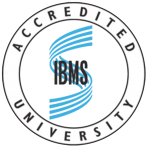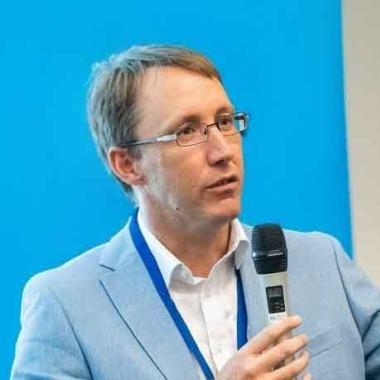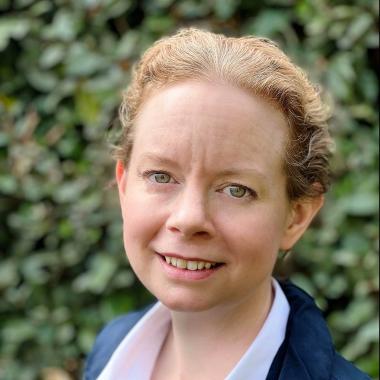Course Overview
Course summary
Our degree courses with foundation year offer the opportunity to prepare you for advanced study before you progress onto a full honours degree at the University of Westminster. Whether you do not feel ready for degree-level study, don’t have the right qualifications, want to change your subject specialism or return to study after an absence from education, we aim to encourage a broad range of students to undertake our foundation year in order to progress onto their full honours degree with us.
The foundation year is designed to give you the opportunity to explore new ideas, opening up new perspectives on the key debates within your chosen field. During the foundation year, you'll explore a range of creative disciplines and get a chance to develop in your chosen field, benefiting from workshops in our high-end facilities and working with leading academics who will encourage you to become a confident and creative thinker. Core modules accelerate your academic and professional development and you will also take modules within your chosen field, giving you the chance to develop a cross-disciplinary perspective on your course.
On successful completion of the foundation year, you'll be able to move on to study for the Biomedical Science BSc Honours over a further three years study.
Biomedical science is concerned with the detailed study of the human body, both in health and disease, with emphasis on the diagnosis and understanding of disease states and the mechanisms involved.
In Year 1 you'll study the important fundamental sciences, including biochemistry, cell and molecular biology, and human anatomy and physiology.
In Year 2 you'll develop your understanding of a wide range of disease processes, combined with the principles of laboratory procedures used to aid diagnosis and treatment.
Between Years 2 and 3, you’ll have the opportunity to undertake a professional placement year in industry. Alternatively, you can undertake a period of study abroad at one of Westminster’s partner institutions.
In Year 3 you'll focus on the study of the complex nature of disease as it affects particular biological systems. You'll also study the laboratory procedures used in haematology, clinical immunology, cellular and molecular pathology, clinical biochemistry and medical microbiology, to diagnose and monitor disease. You'll also undertake a major research project, which will enable you to develop the skills you need for genuine scientific inquiry.
Course structure
Teaching includes tutorials, lectures and seminars, practical laboratory work and group activities, together with supervised use of facilities. Assessment is through a combination of exams and coursework (including essays, practical work, group work, presentations and reports).
You’ll receive continuous feedback through online activities, group and one-to-one tutorials and periodic reviews, designed to give you multiple points of guidance throughout your studies.
The following subjects are indicative of what you will study on this course.
We aim to offer a wide range of option modules. However, availability may be affected by timetabling, staff availability, or student demand, so preferred choices cannot always be guaranteed.
Core modules:
- Biology
- Bioscience in Action
- Chemistry
- Critical Thinking in a Changing World
- Introduction to Academic Practice
- Introduction to Physiology
Credit Level 3
Core modules:
- Biochemistry
- Cell Biology
- Functional Anatomy
- Human Physiology
- Professional Development in Science (PRoDS)
Option modules:
- Applications of Biological Sciences
- Biological Chemistry
- Fundamentals of Pharmacology
- Principles of Human Nutrition
- Science: History Practice and Philosophy
Credit Level 4
Core modules:
- Applied Pathobiology
- Infection and Immunity
- Medical Genetics and Genomics
- Medical Physiology
- Metabolic Biochemistry
- Research Methods
Option modules:
- Bioinformatics
- Diet in Health and Disease
- Genetics in Medicine
- Human Parasitology
- Medical Physiology
- Molecular and Cellular Therapeutics
- Neuroscience
Credit Level 5
Professional experience or study abroad year
Between Years 2 and 3, you’ll have the opportunity to undertake a professional placement year in industry. Completing the placement year will lead to the final award Bachelor of Science with Honours – Biomedical Sciences with Professional Experience.
Alternatively, you can undertake a period of study abroad at one of Westminster’s partner institutions. Successful completion will lead to the final award Bachelor of Science with Honours – Biomedical Sciences with International Experience.
Find out more about the costs involved in taking a study abroad or placement year.
Core modules:
- Cellular and Molecular Pathology
- Clinical Immunology and Immunohaematology
- Diagnostic Biochemistry and Haematology
- Final Year Project in Life Sciences
- Medical Microbiology in the Genomics Era
Credit Level 6
Professional accreditation
The degree is accredited by the Institute of Biomedical Science (IBMS). Honours graduates can apply for registration with the Health and Care Professions Council (HCPC) as Biomedical Scientists, provided they fulfil the additional HCPC requirements of competencies through suitable employment and completion of the IBMS certificate of competence.
This course is accredited by the Royal Society of Biology (RSB). RSB accreditation recognises degree programmes that fully prepare bioscience graduates to address the needs of employers and is an indication that the programme delivers up-to-date knowledge in the right learning, support and teaching environments. At the time of publication, students on an RSB-accredited course are eligible for a free Student Affiliate membership for the duration of their studies. Once graduated from an accredited degree, they are entitled to a 50% discount on Associate membership of the RSB for two years
Studying Biomedical Science at Westminster
Learn more about studying Biomedical Science from a member of the course team.
For more details on course structure, modules, teaching and assessment Download the programme specification (PDF).
To request an accessible version please email [email protected]
Get your copy of the University of Westminster prospectus and browse the range of courses on offer.
Contact us for general course enquiries:
+44 (0)20 7911 5000 EXT 65511
(Mon–Fri, 10am–4pm GMT)
Live chat with us
(Mon–Fri, 10am–4pm GMT)
Studying biological & biomedical sciences with us
Watch the video to learn more about studying biological & biomedical sciences at the University of Westminster.
Open days
Join us at an open day online or on campus. Get a feel for student life at the University of Westminster and talk to course leaders and our support teams.
Can't attend? See more open events
Careers
Fantastic central London location
Our London location facilitates you in finding work experience, with numerous opportunities available within the biomedical laboratories in London, the UK and abroad.
Transferable skills
You'll gain the knowledge and experience to work in areas such as laboratories, clinical trials, healthcare commerce, medical devices industries, regulatory affairs, research development, scientific writing, teaching and many more.
Employers
Access a network of over 3,000 employers at the University’s new home of careers and enterprise, Zone29.
Career development
Our course has been designed to prepare you for a career in medical diagnostic, pharmaceutical and research environments. It provides you with a thorough education in the disciplines required to understand and investigate disease and enables you to develop your career in a variety of pathways in biomedical sciences.
We also have a strong record in preparing graduates for postgraduate study across a range of biomedical and molecular disciplines, as well as postgraduate teacher training.
We regularly monitor graduate career destinations and reflect on this information in the planning of the course curriculum.
Graduate employment
Graduates from Biomedical Sciences are widely sought after by employers. Major employment areas include:
- Clinical genetics laboratories
- Clinical trials
- Commerce (sales and marketing) related to healthcare and diagnostics products
- Diagnostic pathology and clinical laboratories
- Forensic laboratories
- Government or charity-funded research laboratories
- Medical devices and laboratory instrumentation industries
- NHS Blood and Transplant laboratories
- Private pathology laboratories
- Public Health England
- Regulatory affairs (drug registration and patents)
- Research development for pharmaceuticals
- Research laboratories in universities
- Scientific writing and publishing
- Teaching
- Veterinary and agricultural laboratories
Unlock your career potential at Zone29
Zone29 is our new home of careers and enterprise.
Our doors are set to open in spring 2026, but game-changing opportunities are available now, such as:
- jobs, placements and work experience
- tailored career guidance and mentoring
- step-by-step career planning through the Westminster Award
- work and study abroad programmes
- help with starting your own business or freelancing

International Opportunities
Many of our courses offer international study and work experiences, and the University provides other global opportunities that all students can apply for – so whatever you're studying, you'll have the chance to go abroad.
Opportunities could include:
- Taking part in semester or year-long exchanges at institutions around the world
- Attending an international summer school or field trip
- Developing your CV through volunteering or work placements abroad
International experience broadens horizons, boosts self-confidence, and improves global understanding, alongside being fantastic for your career.
Find out more about our international opportunities, including funding options and where you can go.
Course Leaders
Steve Davis
Course Leader for Foundation in Life Sciences
Steve is the Course Leader for Foundation in Life Sciences, which includes the Foundation years of the BSc (hons) courses: Biochemistry, Biological Sciences, Biomedical Sciences, Human Nutrition, Pharmacology and Physiology. A registered practitioner in a CAM therapy, and Fellow of the Higher Education Academy, Steve has wide experience in developing education and training programmes for CAM student practitioners.
Dr Bradley Elliott
Reader in Ageing Physiology
Bradley studied for a Bachelor of Science (Honours) in the Department of Sport and Exercise Sciences at the University of Auckland, New Zealand before completing a Master's of Science (Experimental Medicine) at Université Laval, Canada. He completed his doctorate on human and applied physiology here at the University of Westminster, examining myostatin regulation and muscle atrophy mechanisms during acute hypoxic insult.
Dr Lorna Tinworth
Assistant Head of School
Dr Tinworth holds an MA in higher education and is a senior fellow of the Higher Education Academy. She enjoys teaching bioscience at every level within the School of Life Sciences and leads our core level 5 Medical Genetics and Genomics module.
Lorna completed her undergraduate degree in Molecular Biology and Genetics at Queen Mary’s, University of London. After which she spent a while in an industrial chemistry lab. In her first research assistant role, she explored the genetics of twins at the Social, Genetic and Developmental Psychiatry Centre in King’s College, London.
Course Team
- Rumy Begum - Senior Lecturer
- Dr Sarah Coleman - Senior Lecturer
- Dr Paul Curley - Senior Lecturer
- Dr Bradley Elliott - Reader in Ageing Physiology
- Professor Sigrun Lange - Professor
- Dr Ian Locke - Assistant Head of School
- Dr Lorna Tinworth - Assistant Head of School
- Oliver Haworth - Senior Lecturer
- Professor Emanuela Volpi - Professor
- Dr Polly Hayes - Senior Lecturer
- Dr Adele McCormick - Reader
- Dr Nina Porakishvili - Principal Lecturer
- Dr Stipo Jurcevic - Senior Lecturer
- Dr David Gaze - Senior Lecturer in Chemical Pathology
- Professor Vinood Patel - Professor
- Professor John Murphy - Professor
- Dr Kalpana Surendranath - Reader
- Dr Miriam Dwek - Associate Head of College - RKE
- Dr Joan Liu - Senior Lecturer
- Dr Pinar Uysal Onganer - Reader
- Dr Manal Mohammed - Senior Lecturer
- Dr Alastair Barr - Reader
- Steve Davis - Course Leader for Foundation in Life Sciences
- Dr Saki Raheem - Reader
- Dr Moonisah Usman - Senior Lecturer
- Venetia Tzanni - Senior Lecturer
Entry Requirements
- A levels – DEE (56 UCAS Tariff points)
- T levels – 56 UCAS Tariff points
- International Baccalaureate – 56 UCAS Tariff points from all components of the Diploma Programme. International Baccalaureate Career-related Programme will be considered on a case-by-case basis
- BTEC Extended Diploma – MPP
- BTEC Diploma – MM
- Access – 56 UCAS Tariff points from the Access course
If your first language is not English, you will need an IELTS score of 5.5 overall, with 5.5 in each component.
Please note, however, that the Health and Care Professions Council (HCPC), along with other requirements for registration, requires that students must be capable of attaining the equivalent to IELTS 7.0, with no component part scoring below 6.5, at the point of graduation. During the course of your degree you'll have the opportunity to practise and improve your command of the English language as you complete various assessment tasks including oral and written assessments. If you feel, however, that you would benefit from extra English support, the University has a number of options to help, including a pre-sessional English course and academic English modules, which may be taken as options during your Level 4 and Level 5 studies. For more details on the English language courses and support we offer, visit our English language support page.
Mature entrants without formal qualifications will be considered on an individual basis.
We also welcome applications from students who are taking a combination of qualifications listed above. For further information, please contact Course Enquiries.
View more information about our entry requirements and the application process
International Baccalaureate
56 UCAS Tariff points from all components of the Diploma Programme. International Baccalaureate Career-related Programme will be considered on a case-by-case basis. You can refer to the UCAS calculator to determine your point score. Find out more about acceptance of the International and European Baccalaureate.
Other international qualifications
We accept a wide range of international high school level qualifications. Please see information on Country-specific entry requirements.
International Foundation courses
We work in partnership with Kaplan International College London who provide International Foundation Certificate at their College based in Liverpool Street. These courses are for students who don't meet our direct entry requirements. Upon successful completion, you can progress to your chosen degree at the University of Westminster. Find out about the different university preparation courses that are accepted for entry.
English language requirements
If your first language is not English, you will need an IELTS of 5.5 overall, with 5.5 in each component.
Please note we accept a wide range of English language qualifications and assessments. Find out more at English language requirements.
If you don't meet the English language requirements yet, then we offer online and on campus pre-sessional English programmes to help develop your English language skills to the required level before you start your course. Find out more about our pre-sessional English programmes.
More information
- A levels – DEE (56 UCAS Tariff points)
- T levels – 56 UCAS Tariff points
- International Baccalaureate – 56 UCAS Tariff points from all components of the Diploma Programme. International Baccalaureate Career-related Programme will be considered on a case-by-case basis
- BTEC Extended Diploma – MPP
- BTEC Diploma – MM
- Access – 56 UCAS Tariff points from the Access course
If your first language is not English, you will need an IELTS score of 5.5 overall, with 5.5 in each component.
Please note, however, that the Health and Care Professions Council (HCPC), along with other requirements for registration, requires that students must be capable of attaining the equivalent to IELTS 7.0, with no component part scoring below 6.5, at the point of graduation. During the course of your degree you'll have the opportunity to practise and improve your command of the English language as you complete various assessment tasks including oral and written assessments. If you feel, however, that you would benefit from extra English support, the University has a number of options to help, including a pre-sessional English course and academic English modules, which may be taken as options during your Level 4 and Level 5 studies. For more details on the English language courses and support we offer, visit our English language support page.
Mature entrants without formal qualifications will be considered on an individual basis.
We also welcome applications from students who are taking a combination of qualifications listed above. For further information, please contact Course Enquiries.
View more information about our entry requirements and the application process
International Baccalaureate
56 UCAS Tariff points from all components of the Diploma Programme. International Baccalaureate Career-related Programme will be considered on a case-by-case basis. You can refer to the UCAS calculator to determine your point score. Find out more about acceptance of the International and European Baccalaureate.
Other international qualifications
We accept a wide range of international high school level qualifications. Please see information on Country-specific entry requirements.
International Foundation courses
We work in partnership with Kaplan International College London who provide International Foundation Certificate at their College based in Liverpool Street. These courses are for students who don't meet our direct entry requirements. Upon successful completion, you can progress to your chosen degree at the University of Westminster. Find out about the different university preparation courses that are accepted for entry.
English language requirements
If your first language is not English, you will need an IELTS of 5.5 overall, with 5.5 in each component.
Please note we accept a wide range of English language qualifications and assessments. Find out more at English language requirements.
If you don't meet the English language requirements yet, then we offer online and on campus pre-sessional English programmes to help develop your English language skills to the required level before you start your course. Find out more about our pre-sessional English programmes.
More information
What our students say
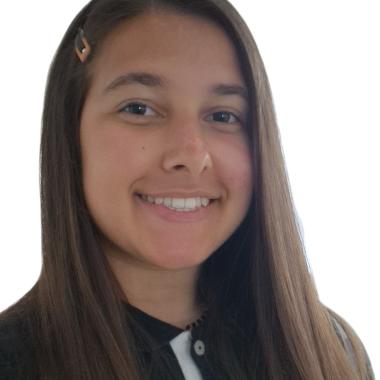
Sara Lala Gul
Biomedical Science BSc - 2027
Studying at the University of Westminster has been an incredible journey. The facilities, like the free gym, well-stocked library, and advanced laboratories, have made my learning experience both practical and enjoyable.
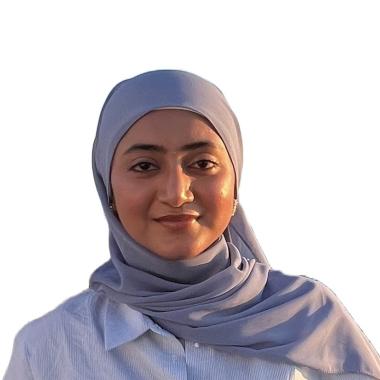
Mishal Mansha Akhtar
Biomedical Science BSc - 2025
These modules provided a perfect mix of theory and laboratory work, where I was able to apply what I learned in lectures to real-world experiments.
Learn new skills
Learn a new language
From Arabic to Spanish, you can learn a new language alongside your degree with our Polylang programme.
Develop your entrepreneurial skills
Access industry networking events, workshops, one-to-one business advice and start-up support through our award-winning WeNetwork.
Gain extra qualifications
We provide access to free online courses in Adobe and Microsoft Office applications, as well as thousands of specialist courses on LinkedIn Learning.
Fees and Funding
UK tuition fee: £9,535 (Price per academic year)
Please note that if you defer your place, the first year’s tuition fees will be those of the academic year in which you enrol, which may be higher than the fee shown for this year.
Fees are subject to UK Government Parliamentary procedure.
Find out how we set our tuition fees.
Funding
As well as tuition fee loans, there is a range of funding available to help you fund your studies.
Find out about undergraduate student funding options.
Scholarships
The University is dedicated to supporting ambitious and outstanding students and we offer a variety of scholarships to eligible undergraduate students, which cover all or part of your tuition fees.
Find out if you qualify for one of our scholarships.
Additional costs
See what you may need to pay for separately and what your tuition fees cover.
International tuition fee: £17,600 (Price per academic year)
When you have enrolled with us, your annual tuition fees will remain the same throughout your studies with us. We do not increase International tuition fees.
Please note that if you defer your place, the first year’s tuition fees will be those of the academic year in which you enrol, which may be higher than the fee shown for this year.
Find out how we set our tuition fees.
EU Qualifications Welcome Award Scheme
If you are an international student accepted on an undergraduate programme starting in September at level 3 (Foundation) or level 4 (first year) on the basis of an eligible EU qualification only, you will be awarded a £4,500 tuition fee reduction off your first year of studies. For more information, see the EU Qualifications Welcome Award Scheme.
International student funding
Find out about funding for international students.
Additional costs
See what you may need to pay for separately and what your tuition fees cover.
UK tuition fee: £9,535 (Price per academic year)
Please note that if you defer your place, the first year’s tuition fees will be those of the academic year in which you enrol, which may be higher than the fee shown for this year.
Fees are subject to UK Government Parliamentary procedure.
Find out how we set our tuition fees.
Funding
As well as tuition fee loans, there is a range of funding available to help you fund your studies.
Find out about undergraduate student funding options.
Scholarships
The University is dedicated to supporting ambitious and outstanding students and we offer a variety of scholarships to eligible undergraduate students, which cover all or part of your tuition fees.
Find out if you qualify for one of our scholarships.
Additional costs
See what you may need to pay for separately and what your tuition fees cover.
International tuition fee: £17,600 (Price per academic year)
When you have enrolled with us, your annual tuition fees will remain the same throughout your studies with us. We do not increase International tuition fees.
Please note that if you defer your place, the first year’s tuition fees will be those of the academic year in which you enrol, which may be higher than the fee shown for this year.
Find out how we set our tuition fees.
EU Qualifications Welcome Award Scheme
If you are an international student accepted on an undergraduate programme starting in September at level 3 (Foundation) or level 4 (first year) on the basis of an eligible EU qualification only, you will be awarded a £4,500 tuition fee reduction off your first year of studies. For more information, see the EU Qualifications Welcome Award Scheme.
International student funding
Find out about funding for international students.
Additional costs
See what you may need to pay for separately and what your tuition fees cover.
Teaching and Assessment
Below you will find how learning time and assessment types are distributed on this course. The graphs below give an indication of what you can expect through approximate percentages, taken either from the experience of previous cohorts, or based on the standard module diet where historic course data is unavailable. Changes to the division of learning time and assessment may be made in response to feedback and in accordance with our terms and conditions.
How you'll be taught
Teaching methods across all our undergraduate courses focus on active student learning through lectures, seminars, workshops, problem-based and blended learning, and where appropriate practical application. Learning typically falls into three broad categories:
- Scheduled hours: examples include lectures, seminars, practical classes, workshops, supervised time in a studio
- Placement: placement hours normally include placement opportunities, but may also include live projects or virtual activity involving employers
- Independent study: non-scheduled time in which students are expected to study independently. This may include preparation for scheduled sessions, follow-up work, wider reading or practice, completion of assessment tasks, or revision
How you'll be assessed
Our undergraduate courses include a wide variety of assessments.
Assessments typically fall into three broad categories:
- Practical: examples include presentations, videos, podcasts, lab work, creating artefacts
- Written exams: end of semester exams
- Coursework: examples include essays, reports, in-class tests, portfolios, dissertation
Data from the academic year 2024/25
Supporting you
Our Student Hub is where you’ll find out about the services and support we offer, helping you get the best out of your time with us.
- Study support – workshops, 1-2-1 support and online resources to help improve your academic and research skills
- Personal tutors – support you in fulfilling your academic and personal potential
- Student advice team – provide specialist advice on a range of issues including funding, benefits and visas
- Extra-curricular activities – volunteering opportunities, sports and fitness activities, student events and more
Course location
With state-of-the-art science and psychology labs and refurbished computer suites, our Cavendish Campus offers our science and technology students a range of learning spaces that are both dynamic and inspiring,
Located in central London, our Cavendish Campus is just a five-minute walk from Oxford Street and Tottenham Court Road.
This course is based at Cavendish Campus, though some teaching may take place at our other central London campuses.
For more details, visit our Cavendish Campus page.
CHANGES TO OUR COURSES
All content on our course pages is accurate at time of publication.
Where significant or material changes have been made, applicants will be informed of these in line with Competition and Markets Authority guidance.
Contact us
Call our dedicated team on:
+44 (0)20 7911 5000 ext 65511
Opening hours (GMT): 10am–4pm Monday to Friday
Opening hours (GMT): 10am–4pm Monday to Friday
More information
Your Westminster
Book an open day. Order a prospectus. Sign up for newsletters.
